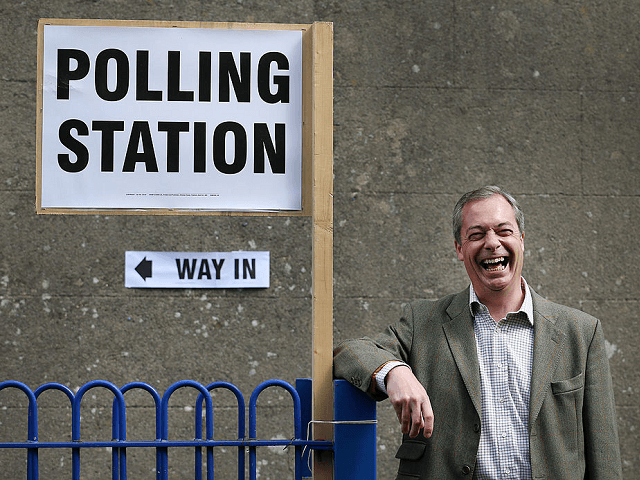The British government has made it legal for an election to take place in May, the necessary legal preparation needed to hold the EU elections that the United Kingdom shouldn’t have been taking part in.
Held every five years to select members for the European Parliament, the May election will come very nearly three years after electors in the United Kingdom voted to leave the European Union by a margin of more than a million votes.
That Britain could be involved despite the British political class being given a clear mandate to take Britain out of the EU in the largest democratic exercise in British history in 2016, which was reconfirmed in the 2017 snap election, will be seen as a deeply symbolic totem of that political elite having failed to deliver on time.
Indeed, Prime Minister Theresa May told Parliament just 14 days ago: “I think people would ask what on earth we were doing if, having voted nearly three years ago to leave the European Union, they were then asked to elect Members to the European Parliament.”
Given the Government’s apparent long-term failure to prepare for either a vote to leave the European Union in 2016 or for a No Deal Brexit after it was cast, the announcement on Monday that the legal instrument needed to allow an election that shouldn’t even be happening to go ahead may be met with some surprise by increasingly jaded voters in the UK.
More people voted to leave the European Union in 2016 than voted for all parties combined in the 2014 EU elections.
Newswire service Reuters reported the remarks of a Government spokesman Monday: “As a responsible government today we have taken the necessary steps required by law should we have to participate… It does not make these elections inevitable, as leaving the EU before the date of election automatically removes our obligation to take part.”
While the United Kingdom was meant to leave the European Union — deal or no deal — on March 29th, Prime Minister Theresa May was unable to achieve enough political support to push her controversial and widely unpopular “deal” to manage this withdrawal through Parliament, and despite having promised not to on several occasions she eventually moved to cancel the official Brexit date.
Moved to April 12th — this Friday — the British government now must either pass a deal or leave without a deal to avoid another more lengthy delay period in which it would have to enter the EU elections. Both withdrawal options remain unlikely to the point of improbability, leaving the chances of the much-feared EU elections ever higher.
Perhaps the clearest sign yet that the elections will be going ahead is the news reported by London’s Evening Standard — a Russian-owned newspaper edited by anti-Brexit Tory grandee and former Chancellor of the Exchequer-cum-Project Fear Supremo George Osborne — is that the governing Conservative Party is officially accepting candidate applications to stand in May. Would-be Members of the European Parliament have until April 24th to get their forms signed.
The last EU elections in 2014 proved to be a pivotal point in British politics: the deeply pro-exit UKIP romped home as the largest party and set in process a series of events which led to pro-Europe then-prime minister David Cameron giving the British people a referendum on membership of the European Union, believing this would put the issue to bed for another generation.
Given the low levels of satisfaction in the handling of Brexit by the mainstream parties, it is likely the May EU elections could see even more votes for pro-Brexit and populist parties than 2014 — a worrying prospect for senior members of the legacy parties in Westminster who face embarrassing headlines on polling day.
The Day of Poll Order laid before Parliament on Monday evening makes it legal to hold the election, but other preparations for this phantom election have been going on for months, despite the fact it was not supposed to take place. Breitbart London reported in May 2018 that the Electoral Commission was then setting aside cash ready to fund the practical side of the European Union elections, then 12 months distant, and set long after the March 29th exit day.
The preparations at the time led to speculation in the respected Sunday Times newspaper that the move to set aside a budget to pay for EU elections two months after the official Brexit date implied some within the Government knew of a “plot to derail Brexit”.
Former Conservative leader Iain Duncan Smith said in 2018: “It raises the question – are they planning for us not leaving the European Union? … It is complete madness to earmark money to spend on an election that the Prime Minister has already said we will not fight unless you are working to make sure the UK stays in the EU.”
There will be substantial added costs in holding the elections. It was estimated in 2018 that Britain stood to save some £100 million by not taking part in the vote, based on the £109 million cost of the 2014 elections.
Oliver JJ Lane is the editor of Breitbart London — Follow him on Twitter and Facebook

COMMENTS
Please let us know if you're having issues with commenting.